6. From January 12, 2024:
“Organ” appeared in one poem, “I’ve heard an Organ talk, sometimes,” and it was included in yesterday’s post. When looking into this poem, I stumbled upon some interesting – and some strange – information!
Here’s some of the interesting info (I’ll probably get to the “strange” stuff tomorrow):
In 1950, American composer Aaron Copland composed a song cycle of twelve works for voice and piano based on the poems Emily Dickinson – and “I’ve heard an organ talk, sometimes” is included. Each song was dedicated to a composer friend, and the entire sequence, with dedicatees, is shown in the picture below.
You can listen to Copland’s work – all twelve songs – by clicking HERE. “I’ve heard an Organ talk, sometimes” starts at 22:12.
Hmmm…I notice that the Copland version changed the final line of the poem from “In that old Chapel Aisle” to “In that old hallowed aisle.” I’m not sure why. I’ve not found any indication that Dickinson considered “hallowed” as a possible alternative word choice.
The Wikipedia article also includes this humorous anecdote: “The original version was premiered at Columbia University on 18 May 1950, with soloist Alice Howland accompanied by the composer. It was not especially well-received by critics, prompting Copland to note wryly to Leonard Bernstein, "that I decided I must have written a better cycle than I had realized."
More on this tomorrow – plus – at some point – I’ll get to the “strange” stuff I came across!
7. From January 13, 2024:
I’ve been posting info related to musical terms in Dickinson's poetry – specifically, the names of music instruments – and yesterday I posted a poem that begins “I’ve heard an Organ talk, sometimes.” I noted that I’d stumbled upon some interesting info related to that poem – and some strange info too.
Yesterday I posted the “interesting” bit: “I’ve heard an Organ talk, sometimes” is one of twelve Dickinson poems included in a song-cycle by Aaron Copland.
Now for the “strange” info I came across – and it has to do with the question, “Was Emily Dickinson ever sexually molested?”
Of course, I have no idea about that. I’ve never even heard anything remotely related to that idea – until I explored this poem about the sound of a church organ.
I was reading a site with an analysis of this poem (the blogger said, “We find the poet holding her breath inside a cathedral while the organ plays…music (that) is so powerfully communicative…(and) she is subtly changed. Moved by the music, the poet also wants to live in greater simplicity”), and after the discussion, a reader responded with this:
“She was probably molested by someone. I was listening to Aaron Copeland's Twelve Poems by Emily Dickinson. I'm just assuming maybe this is what happened to her.”
Say what?!
I didn’t make any sort of connection like that to this poem or Copland’s music.
Later in the post, another reader said this:
“Oh My God!!!
(Previous) Commenters just set off alarm bells I felt after reading an early poem (F43, 1858) and letter (L30, 1850). ...
We know for certain that ED was psychologically abused repeatedly at Holyoke Female Seminary, which she attended August 1847-May 1848, when she was 16-17.
When I read Stanza 4 of F43, ‘Through Lane it Lay’, I felt suspicious she had also been sexually abused. Later, I read L30 to Jane Humphrey, which virtually confirms sexual abuse. Now we have this poem (F211, 1861) repeating the same accusations, this time naming the place where it happened.”
Again: Say what?!
To read “L30,” the letter from Dickinson to Jane Humphrey, click HERE. Just FYI: Jane was a year older than Emily, and she lived with the Dickinsons while the two girls attended Amherst Academy.
What do you think? Does anything in this letter make you think that it “virtually confirms sexual abuse”?
More on this tomorrow.
8. From January 14, 2024:
The person – in response to the post and others’ comments – said this:
“Oh My God!!!
(Previous) Commenters just set off alarm bells I felt after reading an early poem (F43, 1858) and letter (L30, 1850)...
We know for certain that ED was psychologically abused repeatedly at Holyoke Female Seminary, which she attended August 1847-May 1848, when she was 16-17.
When I read Stanza 4 of F43, ‘Through Lane it Lay’, I felt suspicious she had also been sexually abused. Later, I read L30 to Jane Humphrey, which virtually confirms sexual abuse. Now we have this poem (F211, 1861) repeating the same accusations, this time naming the place where it happened.”
Sooo…the first poem mentioned is F43 (which is “Through lane it lay – through bramble”), and the person states that the clues are in the 4th stanza.
"Oh ugly time - and space - and boarding-school contemptible that tries to keep us apart - laugh now if you will - but you shall howl hereafter! Eight weeks with their bony fingers still poking me away - how I hate them - and would love to do them harm! Is it wicked to talk so Jane - what can I say that isn't? Out of a wicked heart cometh wicked words –”
So to recap, this individual based his conclusion on the following:
1. Stanza four of “Through lane it lay – through bramble”
2. The lines above from Dickinson’s letter to Jane Humphrey
3. And finally, the poem posted below, “I’ve heard an Organ talk, sometimes.”
What do you think? Are you convinced?
9. From January 15, 2024:
As I looked into various analyses of that poem, I stumbled upon comments by someone who said that that poem, the 4th stanza of another poem (“Through Lane it lay – through bramble”), and some lines from a letter to friend Jane Humphrey, he was convinced that Dickinson had been molested.
| I was not convinced that these poems and letter “virtually confirms sexual abuse,” so I ran a Google-search to see what might pop-up: “Was Emily Dickinson ever molested?” This book popped up: “The Rape and Recovery of Emily Dickinson In Her Words Poems of Witness and Worth: An Autobiography of Emily Dickinson Through Her Poems.” Click HERE. Part of the blurb on Amazon says this: “A brave little book living up to its title indeed reveals for the first time the identity of the poet's "mystery lover" as the Hon. Edward Dickinson the premier poet's father.” However, the first comment/review I came across stated that the book is “pure speculation” and said this: |
I also came across articles with these titles: “Trauma and Terror in Emily Dickinson’s Poetry,” “The Effects of Incest on the Life and Poetry of Emily Dickinson,” “What Dickinson’s Double Language Reveals About her Sexual Life,” “A Bomb in her Bosom: Emily Dickinson’s Secret Life “ – and many more like this.
Sooo…in my explorations and searches, I could find NO shred of factual evidence of sexual abuse or molestation; however, I did find – perhaps – that scenes & dialogue from Apple TV’s show about Dickinson could have suggested otherwise? I don’t have Apple TV so have only seen bits and pieces of the show – but for now I thought I’d share these two articles:
Click HERE and HERE.
Fin.
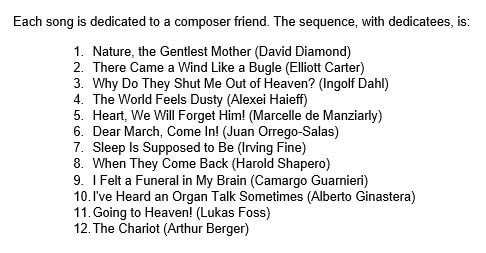
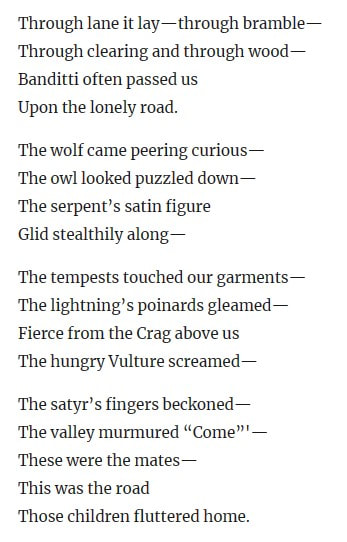
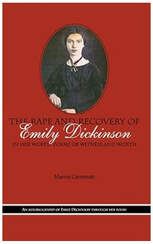
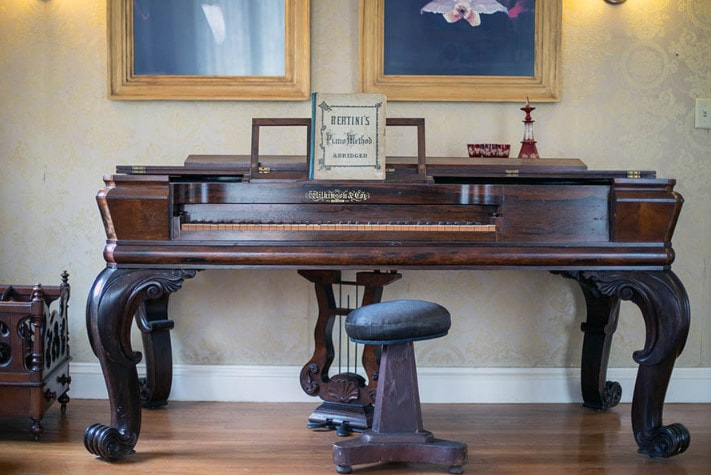
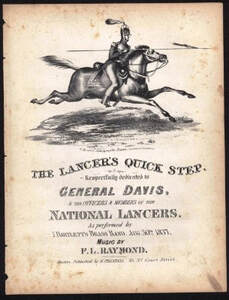
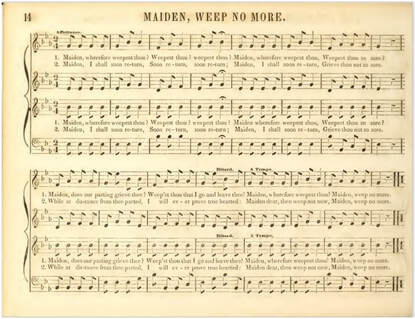
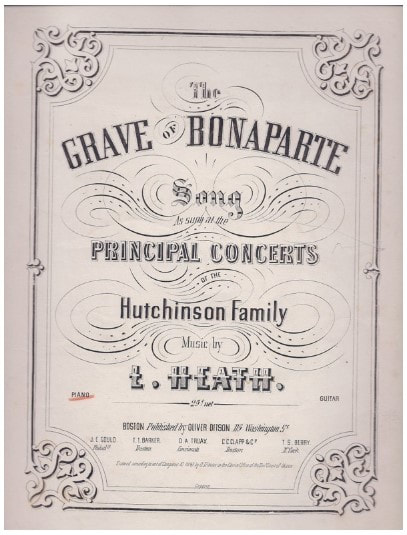
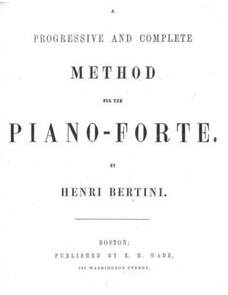
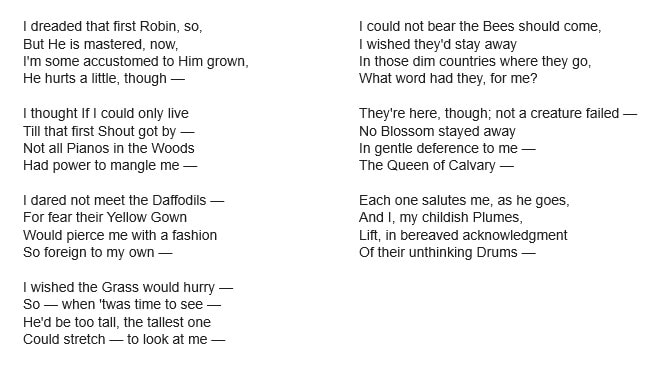
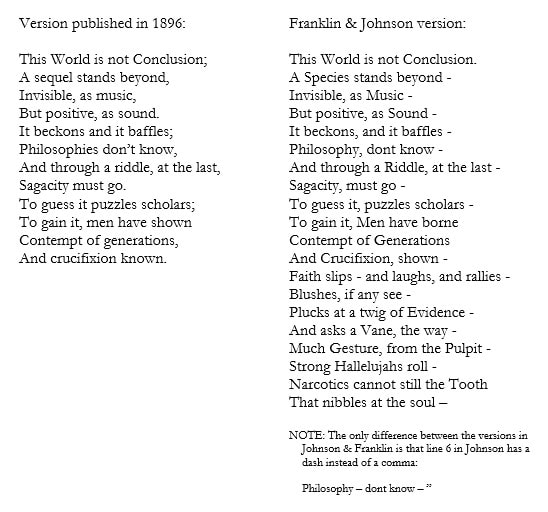
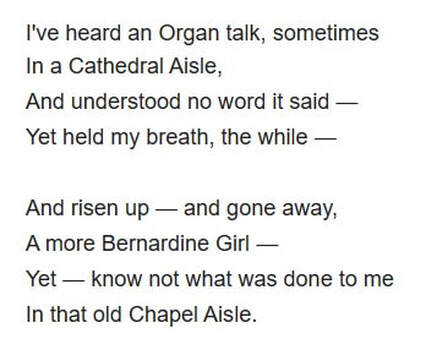
 RSS Feed
RSS Feed
